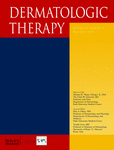Personal treatment experience for severe generalized pustular psoriasis of pregnancy: two case reports
Abstract
Generalized pustular psoriasis of pregnancy (GPPP) is a rare and severe variant of pustular psoriasis. It has been called the most dangerous and life-threatening dermatosis in pregnant woman. To explore the treatment of GPPP, we conducted a retrospective study of two cases of GPPP in our clinic and other related reported cases and manuscripts. In 1992, a GPPP patient came to our clinic. We prescribed her antibiotics and dexamethasone. The pregnancy was artificially terminated. After delivery, she took a retinoid and a topical steroid and recovered progressively. In 2012, we treated another GPPP patient. Methylprednisolone and cyclosporine were administered. Maternal and fetal statuses were monitored closely. The treatment was effective and a healthy baby was delivered. We compared our two GPPP cases and found that cyclosporine and a sufficient dosage of steroid were an effective treatment. Antibiotics could be tried in mild cases or the initial stages before excluding sepsis. Based on other reported GPPP cases, TNF-α antagonists are used as rescue therapy in GPPP refractory to steroid and cyclosporine therapy, but careful consideration of the advantages and disadvantages is warranted before using them. Supportive measures are necessary to maintain pregnancy and prevent complications in cases of GPPP.




